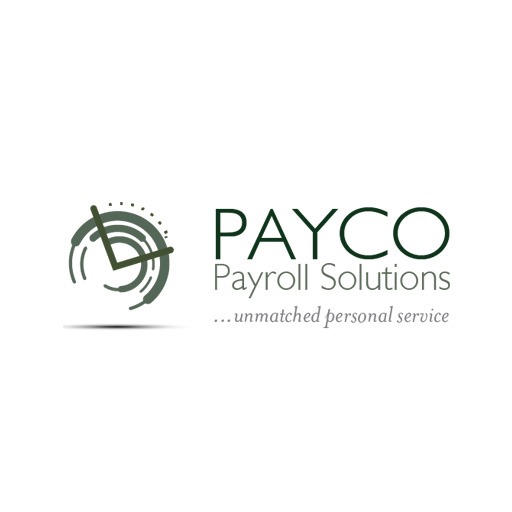Churches in Cleveland, Georgia, have unique responsibilities when handling payroll. Unlike other organizations, churches must consider not only the payroll of full-time staff but also the complexities of managing seasonal and part-time workers. Payroll becomes even more challenging with specific exemptions and unique tax rules that apply to religious organizations. Staying on top of these requirements is important to avoid potential penalties and ensure smooth operations. Proper payroll management can help churches focus more on their mission rather than administrative headaches.
Managing church payroll effectively involves understanding and adhering to specific compliance requirements. Churches have to navigate unique regulations which can sometimes seem puzzling. Keeping track of these rules can be difficult, especially for smaller churches that may not have dedicated staff to handle these responsibilities. However, maintaining compliance is essential to ensure that church operations are not disrupted by avoidable legal issues. Let’s take a closer look at the common regulations and mistakes that churches in Cleveland face when managing payroll.
Understanding Payroll Compliance for Churches
Churches, much like any other employer, need to understand the specific payroll regulations that govern their operations. There are distinct rules for churches, especially concerning taxation and exemptions. Not fully grasping these concepts can lead to financial errors and penalties. To stay compliant, churches should focus on the following key areas:
– Clergy Compensation: Properly categorizing and processing clergy salaries is crucial. This includes differentiating between earned income and housing allowances, which are tax-free for clergy under certain conditions.
– Exemptions and Deductions: Churches may qualify for specific tax exemptions, but it’s vital to apply these correctly. Misapplying exemptions can lead to erroneous filings and fines.
– Employment Tax Obligations: Churches need to ensure they’re keeping up with employment taxes, such as Social Security and Medicare. Clergy may have different withholding requirements, adding complexity to the process.
– Misclassification of Workers: It’s important to correctly classify workers as employees or independent contractors. Misclassification can result in severe penalties.
Avoiding common mistakes in these areas requires attention to detail and a solid grip on the rules. Many churches fall into the trap of misclassifying employees or not correctly applying tax exemptions. Taking proactive steps, such as hiring knowledgeable staff or investing in dedicated payroll software tailored for church needs, can help mitigate these risks.
By understanding these compliance-related challenges, churches in Cleveland can better manage their payroll and reduce the stress associated with these tasks. Despite the difficulties, following these guidelines allows for smoother administration which ultimately enables the church to focus more on its community and mission.
Handling Seasonal and Part-Time Staff
In many churches, staff isn’t limited to full-time employees. Churches often hire seasonal workers for special events or part-time staff to help with ongoing needs. Managing payroll for these workers adds another layer of complexity. It’s important for churches to handle the varied schedules and employment statuses accurately to ensure fair compensation.
Here are some key points churches in Cleveland should keep in mind:
– Accurate Hour Tracking: Whether it’s seasonal choir members or part-time administrative staff, keeping a precise account of hours worked is crucial. Use timekeeping software to ensure reliable records.
– Differing Employment Statuses: Recognize the differences between seasonal, part-time, and full-time statuses. Each one has its own set of payroll considerations.
– Overtime Rules: Be mindful of overtime rules. Even part-time workers may qualify for overtime pay under certain conditions.
– Engagement Periods: Clearly outline the terms of employment, including start and end dates for seasonal workers to avoid any confusion.
These considerations will ensure that the payroll process runs smoothly, keeping all employees fairly compensated and satisfied with their roles in the church.
Addressing Tax Issues Specific to Churches
Churches must also navigate various tax issues, which can be different from other nonprofit organizations. Churches often have specific exemptions and obligations that require careful handling to avoid missteps.
– Exemptions and Allowances: While certain aspects of church operations might be tax-exempt, it’s imperative to understand when those exemptions apply. Housing allowances for clergy can be a significant tax-free benefit if handled correctly.
– Payroll Tax Obligations: Even with some exemptions, payroll taxes such as Social Security and Medicare still apply to certain church employees. Correctly withholding and paying these taxes is essential to remain compliant.
– Regular Audit Practices: Conduct routine audits of tax practices and records. This helps ensure that the right deductions and exemptions are applied correctly and consistently.
– Consulting with Specialists: Engage with tax specialists familiar with church payroll issues to double-check that all regulations are followed accurately.
By staying informed and proactive, churches can better address tax-related challenges and keep their financials in order without unnecessary strain.
The Benefits of Using Payroll Services
Considering the multifaceted nature of church payroll management, employing specialized payroll services can save time and reduce errors. Such services provide tailored solutions that meet the specific needs of churches, allowing staff to focus on their primary mission.
– Time-Saving Solutions: Automating payroll processes through reliable services can free up significant administrative time spent on manual work.
– Error Reduction: Payroll providers often have built-in checks to minimize the risk of costly mistakes related to misclassified workers or incorrect tax withholding.
– Comprehensive Features: Look for payroll solutions that offer features like online portals for employees, automated tax filings, and detailed reporting options.
– Flexibility: A good payroll provider will adapt to the church’s size and needs, accommodating changes in staff numbers or employment statuses efficiently.
Integrating these solutions into church processes allows for seamless management and a proactive approach to potential payroll challenges, ensuring financial duties don’t overshadow the church’s larger mission.
Making Church Payroll Simple and Stress-Free
Navigating the varied aspects of church payroll presents its own set of challenges, but with the right strategies in place, these can be effectively managed. Whether it’s understanding compliance requirements, managing seasonal staff, or dealing with tax issues, addressing these proactively helps align payroll processes with church goals.
Streamlined payroll management not only keeps the books balanced but also ensures that everyone working within the church feels valued and appropriately compensated. By leveraging professional services and considering key payroll needs, churches can ensure that their financial management supports their mission rather than detracts from it.
Navigating the challenges of church payroll in Cleveland can truly enhance your operations and let you concentrate on your mission. If you’re ready to simplify these tasks and maintain compliance, explore how PayCo Payroll Solutions can assist your church. Learn more about church payroll in Cleveland to ensure your payroll processes are both effective and stress-free.





